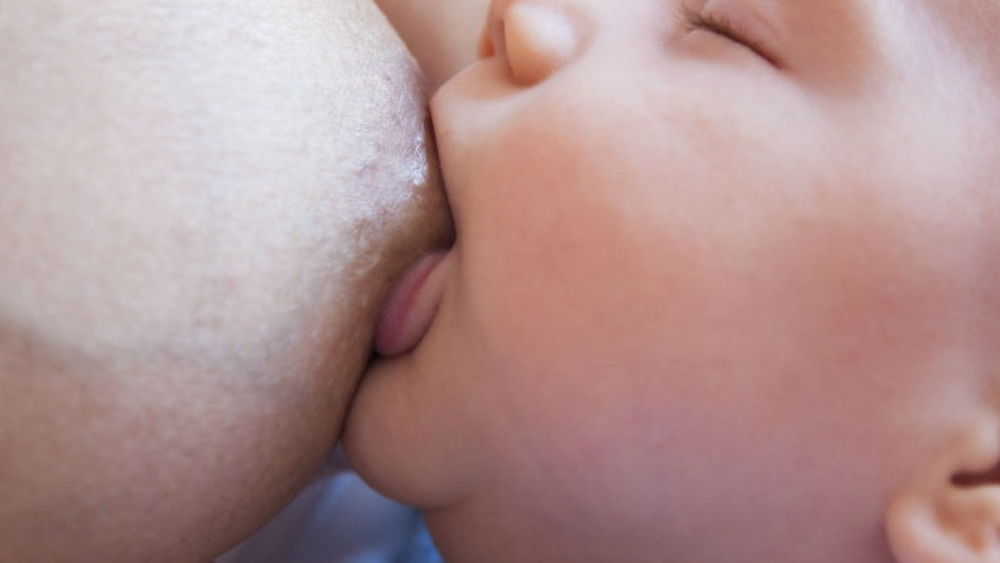
The term dream feeding can be puzzling to anyone who is not a parent. And even for those who've heard it previously, often there's frequently still some confusion over who is doing the dreaming and who is doing the feeding.
Breastfeeding mums frequently dream they are feeding their baby in dreams so real that it can be extremely hard to remember if they really did breastfeed or were simply dreaming they did.
But this is not what dream feeding refers to.
What is dream feeding?
Dream feeding is when a baby feeds while they sleep. Dream feeds can be done equally well with children who are breast or bottle fed. The process of dream feeding usually implies that a baby who is currently asleep is gotten gently from their cot, positioned in their parent's arms and fed. The baby is not woken, their nappy is not altered and they are not stimulated to the point of being awake. They suck while they are still sleeping and after they have actually finished drawing they are positioned carefully back in their cot to continue with their sleep.
The entire process of dream feeding is that the baby does what comes naturally to them (e.g. sucking whilst they are asleep). Throughout dream feeds, babies tend to feed in a calm and constant method and when they are complete, pull away from the nipple or teat.
Dream feeding is one method for parents to try to influence their baby's feeding and sleep cycles - by controlling the timing of their baby's feeds instead of waiting till the baby demands to be fed. Essentially, the baby has already had their late feed and is full but are given a "top up". The goal is that they then continue sleeping through the time when they would typically wake and because of this, mums and dads get to sleep for longer over night.
How can a baby suck when they are asleep?
Some babies suck better when they are sleeping than other babies. Some sleep so deeply that they actually can't stir themselves to draw successfully and just go directly back into a deep rest. Others in fact feed much better during dream feeds than when they are awake.
This is often the case with infants from around 4 months onward, who have found there's an universe to take a look at and can be rather distracted when they feed throughout the day.
Why would I want my baby to dream feed?
Newborns do not have the brain maturity to be able to differentiate night from day. Their metabolism and small stomach size mean that they need to be fed every few hours around the clock. Naturally this is exhausting for brand-new parents, especially after the preliminary novelty of brand-new parenthood has actually worn away and their own reserves of energy start to wind down.
Children likewise have much shorter sleep cycles than adults do, so they wake more frequently and do not follow predictable patterns of long hours sleeping. But as they grow and there is more consistency and regular to their feeding and sleeping behaviours, they begin to sleep for longer in the evening and not require to feed so frequently.
By around three months old, many infants have more of a foreseeable awake/asleep/play patterns taking place. Preferably, a continuous and long sleep of 6 hours starts to happen in babies who are getting adequate milk during the day/evening to grow and grow. Often this can occur as early as 6 weeks. And it is this longer sleep period which enables mums and dads to offset the hours of their own lost sleep which has occurred in the first couple of weeks of their baby's life.
In some cases infants do not feed through the day as they should. This can be due to a lot of factors like illness, distractibility or sleeping for long durations; in which case it's important to use a dream feed to make up for missed feeds during the day/evening.
Be aware that the more milk a baby has during the night, the less they might demand through the day. Mums and dads need to be in control of dream feeds, not their baby.
How old should my baby be to do a dream feed?
There's no perfect age to present a dream feed. There are too many variables for why a dream feed may be required. You may want to think about doing one if:
-
Your baby has actually been asleep for a couple of hours and you are keen to go to bed yourself. If your baby last fed at around 6pm and it's now 10pm and they are still asleep, then a dream feed may be beneficial.
-
If your baby is past the newborn period and has begun to have a longer, constant sleep in the evening. This can happen from six weeks onward.
-
Your baby has actually not fed as much as they typically do throughout the day and you believe that they need a feed to offset this.
-
If your baby has actually been unhealthy and you believe they need an additional feed to maintain their hydration.
-
If you are breastfeeding and your breasts are uncomfortable.
-
If you have been at work all day and just want to reconnect with your baby.
-
If your breast milk supply is low and you require the additional stimulation of doing more breastfeeds.

